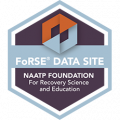Does Alcohol Cause Acne?
To directly answer the question, does alcohol cause acne, there is a need to answer first what acne is, and what it is not. Acne is a skin condition that happens when the hair follicles embedded in the skin become clogged or blocked. This blockage could be due to excessive build of oil, dead skin cells, dirt, or a combination of all of these.
The skin is made up of millions of cells, and these cells have a natural life cycle where they also die and flake off. To ensure that the cells don’t die off faster than they could be reproduced, the skin’s sebaceous glands produce sebum, an oil that keeps skin cells moisturized long enough to live its natural life cycle.
Sometimes, the dead skin cells don’t flake off and instead get accumulated with the sebum. This accumulation also attracts dirt, which creates a breeding ground for bacteria. This causes an inflammation that results in acne. As of 2021, 50 million Americans have acne of some kind, with some so severe that it causes scarring.
Acne typically hits people around the age of 12 and sometimes stays up until ages 24 – 26. Acne is not a symptom of alcohol abuse. Alcohol intake, however, is listed among the stressful lifestyle habits that make people more vulnerable to certain conditions, including acne.
Moreover, while alcohol does not tie in directly with acne, it does affect certain processes of the body, including hormone production. Certain hormonal imbalances promote the development of acne, particularly in people who are prone to skin irritations.
Table of Contents
ToggleWhat Adverse Effects Does Alcohol Intake Have on the Skin?
 The skin might not be able to express it as fluently as most parts of the body after a drinking spree, but it also suffers largely from too much alcohol intake, and even more so from alcohol abuse. Following an incident of massive alcohol intake, most people suffer from a hangover, or the set of symptoms that a person goes through from drinking too much at one time.
The skin might not be able to express it as fluently as most parts of the body after a drinking spree, but it also suffers largely from too much alcohol intake, and even more so from alcohol abuse. Following an incident of massive alcohol intake, most people suffer from a hangover, or the set of symptoms that a person goes through from drinking too much at one time.
There are a number of contributing factors that make a hangover so awful, but one of the biggest reasons for it is dehydration. Even a little bit of alcohol produces mild toxicity already in the body, and a large amount of it will already cause the body to start purging itself of the toxins in any way it can.
This usually happens in the form of frequent urination, profuse sweating, and vomiting. As the body is already in an “emergency mode” to remove the toxins in the system caused by too much alcohol intake, it does not have the luxury of removing the actual toxins from everything else, such as water. As the body evacuates liquids, and sometimes solids as well, from the body, dehydration starts to set in. Add to this the fact that alcohol is also a potent diuretic, which will make the body release more urine than it usually does.
Dry Skin
This effect is also reflected on the skin. As the dehydration effect is body-wide, the skin also suffers from it, leading to the skin losing more moisture than it usually does. Skin cells die quite fast without moisture, leading to dry, delicate skin. Dry skin also loses most of its elasticity, which is why chronic drinkers look older than they should, due to the wrinkly, dull, and unhealthy look of their skin.
Dry skin is largely associated with age, but in reality, people who develop dry skin tend to look older than they really are. Conversely, there are people who look surprisingly younger than they really are due to healthy, glowing skin. Dry skin is quite easy to develop in most people, as there are many contributing factors in the world today. These include:
- Medications
- Reaction to environmental pollutants
- Excessive exposure to the elements
- Unhealthy habits like smoking, drug addiction, and alcohol abuse
- Unhealthy diet
- Vitamin deficiency
- Genetic predisposition
- Chronic allergies
- Diabetes
- Thyroid disease
- Kidney disease
- Malnutrition
- Temperature extremes
Flushing
Alcohol stimulates the release of histamines in some people, and this leads to the blood vessels under the skin to dilate, which causes the skin to take on a reddish hue, as if it was inflamed. This effect is particularly pronounced in people with Asian heritage due to a genetic trait where there is a deficiency of an enzyme needed to process alcohol in the body.
In others, the flushing becomes more severe and looks more like a case of the hives where dark, red patches of skin appear on the body. This is mostly true with people who have an allergic reaction to alcohol or some other ingredient in the alcohol type taken.
Skin Signs of Sleep Disruption
People think alcohol intake leads to better sleep, but it actually promotes sleep disruption, leading to waking up at odd hours to urinate, or simply due to broken sleep cycles. The irregular sleep patterns also manifest on the skin in the form of a duller complexion, pale color, and darkening of the skin under the eyes.
Sun Sensitivity
While some people suffer from headaches when exposed to the sun after a session of binge drinking, others suffer a severe burning sensation on their skin. Others suffer a more pronounced adverse effect, developing severe itch and even blisters when exposed to the sun.
This condition is largely attributed to the dehydration of the skin due to alcohol or some other factor, more than the actual reaction of the skin to the ultraviolet rays of the sun. Regardless of the reason, prolonged exposure to the skin is bound to have an adverse effect on the skin of anyone, whether they abuse alcohol or not.
Tender and Wound-prone skin
Some people who have abused alcohol for quite some time have skin that is so dehydrated and dry that they tend to suffer wounds, cuts, and lesions far easier than most people. Their skin has lost its natural resilience and elasticity, causing the skin to break easily even from the slightest abrasion.
Rosacea
While it has not been concretely proven, there are many incidents where heavy drinkers manifest the facial flushing associated with rosacea, including the reddening and swelling of the nose. Some studies have even pointed to a greater chance of developing rosacea due to heavy drinking.
Rosacea also manifests in small, red bumps on the face, and in pus-filled spots as well. These symptoms are quite similar to acne, which is why people with rosacea are often thought to be suffering from acne.
Psoriasis
Chronic and heavy alcohol intake is also associated with developing psoriasis. Psoriasis manifests in red, dry, and itchy patches of rough skin. To make matters worse, alcohol causes complications when taken with psoriasis treatments, resulting in lessened efficacy of the treatment, or even dangerous complications.
Skin Cancer
Alcohol abuse is linked with the development of a variety of cancer types, including skin cancer. This is particularly true in people who already have a disposition to develop skin issues, as the alcohol intake exacerbates the vulnerability of their skin.
Malodorous Skin
This condition is caused more by toxins that go with the sweat expelled by the body, rather than the skin itself. As sweat comes out through the pores on the skin, the odor of the toxins tends to stick to the skin as well. Heavy drinkers have a reputation for smelling bad, and this is the main reason for this.
What Could Be Done To Prevent Acne?
Acne cannot be prevented. It is a condition that will naturally occur in people who have a predisposition to develop it. It is also not true that developing acne is a genetic trait, as there is no scientifically proven acne gene.
What can be done, however, is to engage in practices that would minimize the incidents of breakouts, where acne manifests at its worst. This necessarily includes correcting specific behavior and practices that exposes the body to more stress, which in turn leads to an acne breakout.
Learn Stress Management
Acne is the outward sign of many people who experience unmanaged stress. This stress could be from work, the environment, or even from a poor way of dealing with everyday issues. Some people break out in an alarming display of hives in just a short time after experiencing a stressful incident.
Learning proper and effective stress management allows the body to process the stress reactions better. This includes better coping skills and better thought and perception handling relevant to stress. Some people fuss and dwell far too long on small issues until their body reacts to the stress adversely, elevating their heart rate, blood pressure, and irritability. This, in turn, manifests outwardly, in ways like an acne breakout.
Eat Healthily
There is no real connection between eating oily, fat-rich food and developing acne or pimples, since the food will still go through the digestive system, where everything is processed. This means the oil from the food will not add to the oils on the skin, which in turn is held to cause pimples and acne.
What eating unhealthy food will do, however, is give the organs that process food a hard time. This could lead to enzymes not being released, or too much enzyme being released, or to excessive hormones being released, causing an adverse reaction somewhere in the body. This kind of internal turmoil could also lead to a breakout. By eating healthy, the proper food intake will promote better health, better processes, and the proper release of waste. This will minimize or even suppress any breakout.
Exercise Regularly
Exercise helps release the “happy hormones” of the body, leading to a better sense of self. The sweating involved in exercise also helps remove toxins in the body, helping clean out the system. The combination of cleaning out the system and release of happy hormones will help greatly in managing the stress levels of the body.
With stress levels significantly brought down, a breakout is less likely to happen, if at all.

MD, Psychiatrist
Dr. Vahid Osman, MD is a psychiatry specialist in Indianapolis, IN.
Dr. Osman completed a residency at Austin State Hospital. He has over 32 years of experience in Psychiatry & Behavioral Health. He is board certified by the American Board of Psychiatry and Neurology.





